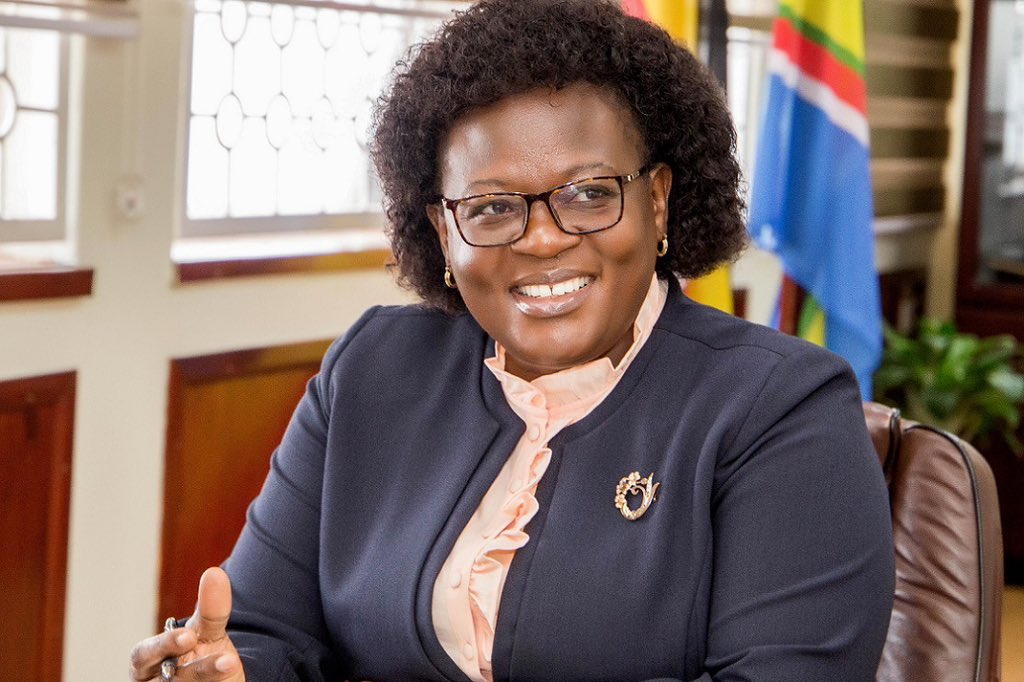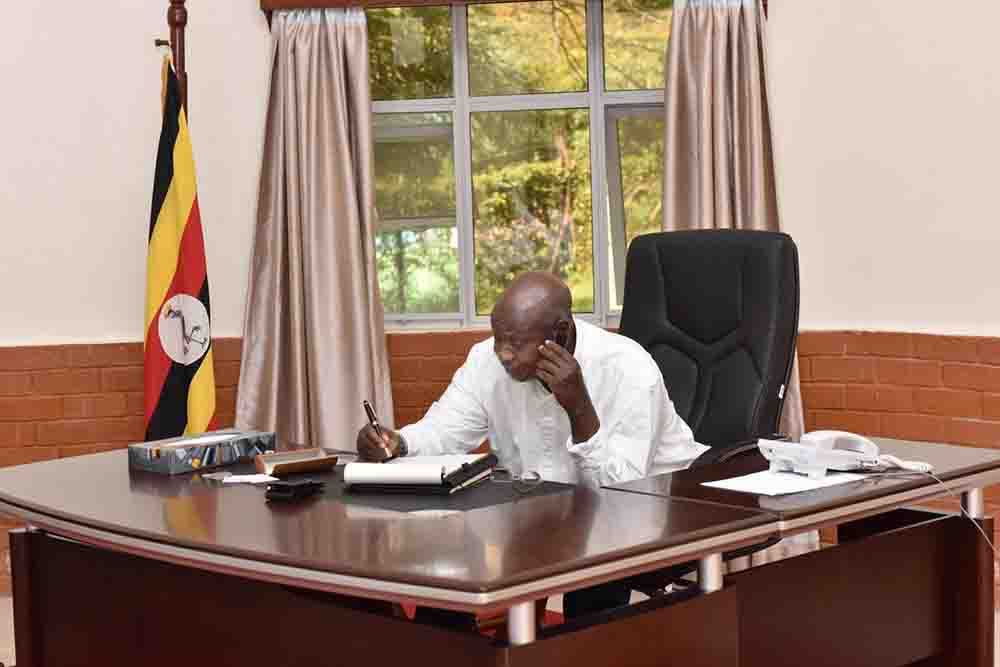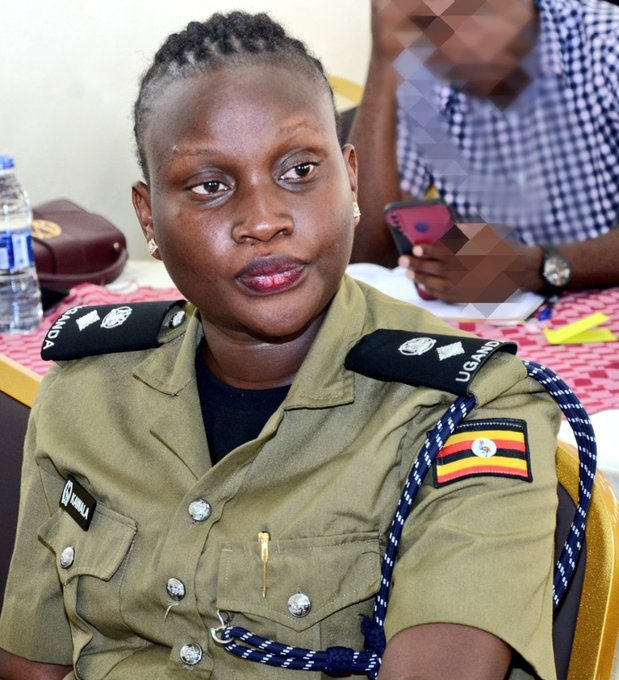Kampala Capital City Authority (KCCA) has once again found itself in a familiar spot—at the center of a storm. This time, it’s not about potholes or poor drainage, but the tragic collapse of the Kiteezi landfill, which claimed 35 lives in a disaster that could have been avoided. Now, former KCCA executive director Dorothy Kisaka, her deputy, Eng. David Luyimbazi, and Director of Public Health, Dr. Daniel Okello, have been summoned to the Criminal Investigations Directorate (CID) for questioning.
The police, apparently more on top of things than KCCA lately, confirmed that the trio would be at the CID headquarters on Wednesday, October 16. According to the spokesperson, ACP Rusoke Kituuma, there’s no rush. After all, in Uganda, we move at our own pace—like a boda boda in Kampala traffic, full of stops and starts.
The trio’s summoning stems from President Museveni’s directive after the Inspector General of Government (IGG) report pointed fingers at them for criminal negligence. It seems the collapse of garbage at Kiteezi, which buried 35 people, wasn’t just a freak accident. It was the result of the Authority’s failure to manage the city’s only landfill properly—a disaster that was, sadly, a ticking time bomb. You can’t keep piling up garbage like leftover Katogo on your plate and expect it not to spill over.
The real surprise is that it took this long for the hammer to fall. KCCA, under Kisaka’s leadership, was entrusted with managing the capital city—like being given the keys to the family Kadama. But instead of the expected smooth running, the institution has been bogged down by infighting, financial constraints, and, of course, Kampala’s ever present potholes.
Ms. Dorothy Kisaka’s journey at KCCA started with high hopes, but ended in, well, this mess. Appointed in 2020 after President Museveni handpicked her, she took over from Jennifer Musisi, who famously resigned in frustration back in 2018. With her legal background and a stint as senior presidential adviser at the Office of the Prime Minister, Kisaka was expected to steer Kampala toward progress. But instead, she found herself in the middle of Kampala’s biggest dumpster fire—literally.
Table: Kisaka’s Career at a Glance
| Role | Details |
|---|---|
| Executive Director, KCCA (2020-2024) | Oversaw city operations, public funds, and service delivery |
| Senior Adviser, Office of the Prime Minister | Coordinated policy implementation |
| Commissioner, Electoral Commission (2010-2014) | Managed elections and ensured transparency |
On August 10, 2024, the Kiteezi landfill turned deadly when a massive pile of garbage collapsed on nearby houses, killing 35 people. The stench of poor management (pun intended) was unmistakable. How does a city authority, tasked with ensuring proper waste disposal, let a landfill get so out of hand? It’s like leaving Matooke in the sun for too long—sooner or later, it’s going to spoil.
Despite warnings that Kiteezi was running out of space, KCCA seemed content to look the other way, focusing instead on half hearted solutions and inadequate budgeting. As one analyst put it, Kisaka’s leadership wasn’t the only issue. The entire system was broken—like the classic Ugandan saying, “You can’t fix a bicycle with no wheels.”
Kisaka, despite being on the defensive, wasn’t entirely blind to the challenges KCCA faced. In 2023, during the infamous Kampala Pothole Exhibition on X (formerly Twitter), she admitted that the authority was financially crippled. At the time, she told journalists that KCCA needed between UGX 75 billion and UGX 100 billion annually to maintain roads. What they got was a paltry UGX 26 billion—a budget that wouldn’t even fix the road outside Uganda House.
But despite the financial challenges, some Ugandans felt Kisaka wasn’t aggressive enough in demanding resources. As one International Relations student, Robert Ssali, pointed out, “That job needed an aggressive, hard-hitting personality. Kisaka just wasn’t ready to fight.” It seems like the job required more Museveni fire and less soft spoken diplomacy.
Table: The Financial Reality of KCCA
| Required Budget for Road Maintenance | Actual Budget Received |
|---|---|
| UGX 75b – UGX 100b annually | UGX 26b annually |
Critics Weigh In: Was Kisaka Over Her Head?
Analysts are divided on whether Kisaka was ever the right fit for the KCCA role. Professor Mwambutsya Ndebesa, a political analyst, suggested that Kisaka was a victim of circumstance—put in charge of an institution too big for her experience. “Kisaka didn’t have the technical knowledge to manage KCCA,” he said, adding that the job should have been advertised to find the best candidates, not just handed to political appointees.
But this isn’t just about Kisaka. Political battles within KCCA, resource constraints, and a lack of public support all played a role in her downfall. As Professor Sabiti Makara from Kabale University put it, “Ugandans expected a lot from Kisaka. Unfortunately, she didn’t deliver on those expectations.”
The battles within KCCA were like those clan meetings where everyone wants to talk, but no one listens. Ego clashes, finger pointing, and blame games became the order of the day, with Kisaka caught in the crossfire. By the time the Kiteezi disaster happened, her fate was all but sealed.
Despite everything, Kisaka did manage some accomplishments. In her report to the Minister of Kampala Metropolitan Affairs in 2023, she outlined several achievements, including reconstructing 43.2 kilometers of city roads, building 10.45 kilometers of drains, expanding street lighting by 535 lights, and clearing frontages with the help of the police and army.
But as Professor Makara rightly pointed out, “You say you’ve done this and that, but look at Kampala today. The roads and drainage are still a mess.” Ugandans, like everyone else, want results, not excuses. And despite Kisaka’s efforts, the perception that she failed to bring order to KCCA stuck like a Kampala traffic jam.
As the CID summons loom, Kisaka, Luyimbazi, and Okello will have to answer some tough questions about their roles in the Kiteezi tragedy. While it’s easy to point fingers at their leadership, the deeper issues at KCCA suggest that Kampala’s problems are far from simple. Corruption, mismanagement, and insufficient resources have plagued the authority for years. In Uganda, it’s like trying to fetch water in a basket—no matter how hard you try, nothing seems to stick.
On Wednesday, the trio will have their chance to explain what went wrong. But whether or not they have answers, the truth is, Kampala’s garbage crisis has been building for years. The Kiteezi landfill collapse may be the tragic tipping point, but the city’s woes go far beyond one disaster. As the CID prepares for another round of high profile questioning, one thing is certain: Kampala’s leadership needs to get its house in order, or risk watching it collapse—literally—under the weight of its own problems.
For Kampala’s residents, the question remains: Can KCCA clean up its act, or will it continue to pile on problems like garbage at Kiteezi?




















